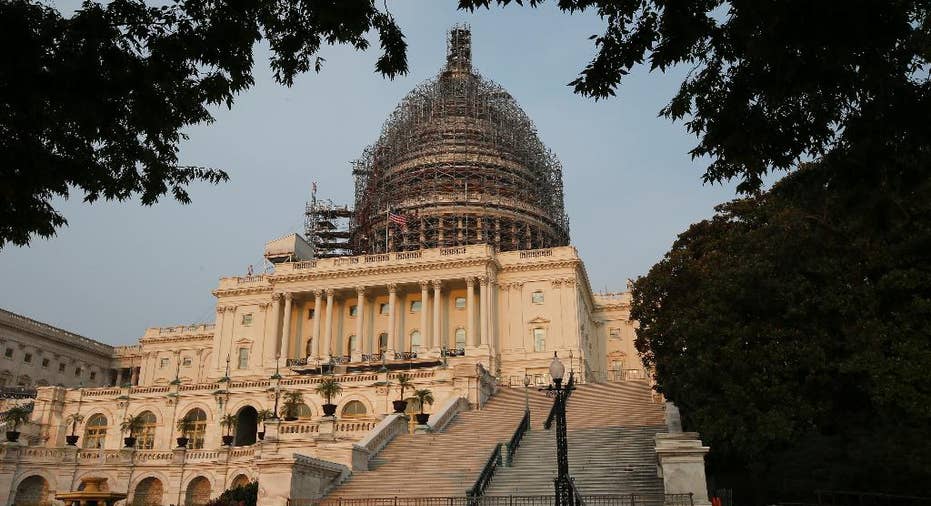Congress returns from summer break to a fall full of deadlines on spending, Iran, taxes

Congress returns from its August recess Tuesday with a hefty list of unfinished business. Lawmakers have just 10 legislative days in September to ensure that the government stays open.
A look at Congress' must-do list:
— The 12 annual spending bills that fund the government remain in limbo over disparate disputes, from the Confederate flag to defense budgets. Congress is likely to approve a measure that would keep the government operating temporarily, which leaders hope they can do by Pope Francis' address to lawmakers Sept. 24. Conservatives insist they will not back legislation financing Planned Parenthood; the group is under fire after its officials were secretly recorded discussing how they obtain fetal tissue for research.
— Congress has until Sept. 17 to vote on the international nuclear deal with Iran. Both House and Senate Republicans are planning votes on a resolution to reject the deal, which President Barack Obama has promised to veto. At least 37 Democratic senators have pledged to support the agreement, giving Obama enough votes in the Senate to sustain a veto.
— The government's ability to pay its bills expires around Oct. 30, so Congress will have to extend the government's borrowing authority by then or face a first-ever federal default. That probably means there will be demands and drama attached to that showdown.
— Congress has until Oct. 29 to renew federal highway programs. Lawmakers approved a three-month extension in July, but a deadlock over finances thwarted an effort to pass a multiyear version that would give state and local governments confidence to map long-term road-building plans.
— More than 50 temporary tax breaks for businesses and individuals expired at the beginning of the year. In an almost annual ritual, Congress has until the end of the year to extend them so taxpayers can claim the tax breaks on their 2015 tax returns.
— Already expired is the ability of the Export-Import Bank to make fresh loans. The tiny federal agency makes low-cost borrowing available to help American exporters sell their products; conservatives complain that amounts to corporate welfare.
— Lawmakers must resolve disputes over spending levels and the administration's effort to close the U.S. prison in Guantanamo Bay, Cuba, in their annual defense policy legislation. The White House has threatened to veto the bill.
— Deadlines are also approaching for lawmakers to renew the Federal Aviation Administration's authority to spend money. Also set to expire Sept. 30 are child nutrition programs and pipeline safety standards.
— High on the may-do list: a fresh GOP attempt to repeal Obama's health care law and perhaps replace it with an alternative, if Republicans can agree on something.
Also, an effort to improve cybersecurity legislation and an effort to overhaul the taxes that U.S. companies pay on their foreign profits. Congress could also address a funding shortfall for Social Security's disability program. The trust fund that supports the disability program is projected to run dry in late 2016, which would trigger an automatic 19 percent cut in benefits.



















